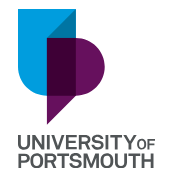About Architectural Assistant Degree Apprenticeship (architecture) BA (hons) in University of Portsmouth
Architects design buildings and play a role in shaping cities, communities and the way we live. To become an architect, you need qualifications recognised by the Architects Registration Board (ARB).
This Architectural Assistant Degree Apprenticeship course is the first step to achieving these qualifications. You'll develop the technical and analytical skills you need to begin a career as an architect – all while earning a salary and getting on-the-job experience.
During term time, you'll spend 1 day a week on day release at the University and the other 4 days applying your skills and getting practical experience in the workplace. The Government or your employer pay your tuition fees – so your architecture degree doesn’t cost you anything.
When you finish your apprenticeship, you'll have a Bachelor's degree in architecture and you'll be primed to take on further study to continue your journey in becoming a registered architect.
Pending accreditation:
Architects Registration Board (ARB) and Royal Institute of British Architects (RIBA) accreditation is pending for this course, but we expect this to be confirmed soon.
Once confirmed, this accreditation means you'll satisfy the criteria for RIBA/ARB Part 1 exemption when you complete your apprenticeship, putting you one step closer to becoming registered as an architect.
Careers and opportunities
Many architecture graduates continue their training towards becoming a registered architect with further study at Master's level or registration on a Architect Degree Apprenticeship (Master of Architecture and Professional Practice) – equivalent to ARB and RIBA Part 2 and 3.
You can use your skills in areas such as:
- design practice
- planning
- historic building conservation
- project management
Roles our architecture graduates have taken on include:
- architectural design
- interior design
- landscape architecture
- urban design and master planning
- planning
- architectural technology
- product design
- graphic design
- lighting design
- set design
After you leave the University, you can get help, advice and support for up to 5 years from our Careers and Employability service as you advance in your career.
Academic qualification equivalents
- If you have an average of 75% or above in the 12 Standard (State Board) examinations or 70% in the Central Board, we'll consider you for admission onto an undergraduate course such as a Bachelor's degree. You must have studied relevant subjects and achieved strong grades.
English language requirements (one of the below):
- IELTS: A minimum of IELTS band 6.0, with no component below 5.5.
- TOEFL iBT: For most of our Bachelor's degrees, you need a score of 79 with a minimum of:18 in Reading 17 in Listening 20 in Speaking 17 in Writing Some courses, especially those with a high level of discussion and writing, require higher scores. You can see course-specific details on the individual course pages.
- PTE: 54 points, with a minimum of 51 in each component.
University of Portsmouth Highlights
| Type of Institution |
Public |
| Campus Setting |
Urban |
| Endowment |
9.9 Lakhs GBP |
| Number of Campuses |
2 - Langstone Campus and University Quarter |
| Percentage of International Students |
26% |
| Total number of Professors |
1,126 academic and Research staff |
| Student Satisfaction Rate |
Secured 88% Student Satisfaction |
| Graduate Job Rate |
97.5% |
| International fee |
£11,250 per annum |
| Type of Academic Programs |
UG, PG, Ph.D., research and Pathway Courses |
| Mode of Program |
Full time |
| Average Graduate Salary |
£13,900 - £15,900 a year |
University of Portsmouth Average Tuition Fees And Other Expenses
| Expenses |
Estimated cost in pounds |
| Undergraduate Fee |
£13,900 – £15,900 approx |
| Postgraduate Fee |
£13,900 – £15,900 approx |
| Accommodation |
£5000 approx |
| Cost of living |
£7000 - £10,000 approx |
| Placement year fee |
£2400 |
